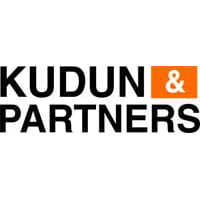

Vice president and managing legal counsel Asia Pacific | Fluence







Martijn van Bemmel
Vice president and managing legal counsel Asia Pacific | Fluence
What are the most significant cases or transactions that you and your legal team have recently been involved in?
The Fluence APAC legal team has been instrumental in closing an incredible ~ 1 GW of battery-based energy storage in the last two years, supporting the energy transition story in Asia Pacific. This effort has helped solidify Fluence’s position as a leading global provider of energy storage products and services, and digital applications for renewables and storage assets. On the Legal side, Norm Maamary and Marijana Landeka deserve special mention and credit for their tireless dedication to make this happen.
Contracting for energy storage projects is a new experience for me as it is a bi-directional technology on the grid (power flows both ways, in and out of a battery storage facility) that has multiple applications and use cases. Structuring contracts to capture this flexibility requires an innovative approach to adequately allocate the specific commercial and technical risks that come with this new technology between project owner, operator and technology provider.
The transactions we are particularly proud of include the largest energy storage fleet across Southeast Asia with San Miguel Corporation in the Philippines, the largest privately funded energy storage system in Australia (150 MW/150 MWh Hazelwood project), the largest government energy storage system in Taiwan (60 MW/60 MWh) and the biggest energy storage system ever in Taiwan with Rich Electric (99 MW/99 MWh). Also, the team was deeply involved in negotiating and establishing our joint venture in India, which will allow Indian grid operators and renewable energy projects to benefit from Fluence’s energy storage solutions. While Fluence is a global brand, the APAC region has been operational since 2019. It is a testament to the dedication of the whole APAC team that in that short time span Fluence has been awarded with 1 GW of energy storage.
Looking forward, what technological advancements do you feel will impact the role of in-house legal teams in the future the most? Which have you found most useful in your legal team?
There is still quite a wide gap between the paper world of commercial contracts and the day-to-day operation of a business. Contracts for large transactions often contain detailed provisions on the parties’ obligations and processes. But – because of size and complexity – contracts are not always easy for the business to access and manage. It has been estimated that poor contract management leads to an average value leakage of about 9% of annual turnover.
Modern contract management tools provide an increasingly important solution to efficiently create, negotiate and approve contracts, as well as make sure that your company complies with all its contractual obligations. This will have a big impact on the role of in-house legal team, which will be able to provide increased transparency on their company’s obligations, to manage the risk profile of its contract portfolio, ensure the company’s compliance and – importantly – help in a tangible way to increase the company’s profitability.
If you have worked in other countries, what are the main challenges unique to operating as an in-house counsel in your current location?
It was the first time I went to Japan to negotiate a transaction. As I sat down in the meeting room with my colleagues, we started with introductions. It took quite a while to introduce everyone. Finally, I thought that we were getting started with the negotiations and I took out my documents, ready to make my points. But no, lunch was getting served and we all set down for some amazing Japanese food. As the day passed by, both parties made passing comments to the most contentious points of the contract, and heads nodded, but never was a page-turn done or the wording of a clause argued. By the end of the day, as the parties went their separate ways, my colleagues congratulated each other on a successful day of negotiations in which the most important points were agreed, and left me slightly befuddled of what had just happened.
Having worked in the Netherlands, South Africa and London, what strikes me in Asia is the diversity of business approaches among Asian countries. The way to get to know and trust your business partner, the way to negotiate on a contract, and the approach to governance and contract execution all vary to a large degree from country to country. This is not always recognised by companies that – coming from, for instance, Europe or the US – are not used to such a diversity within what they consider as one market: “the Asian market”. The challenge as a legal team operating in the Asian context is to always keep these differences in mind. But – and this is certainly the case in Asia –variety is the spice of life.
As we enter the next decade, what skills will a corporate legal team need to succeed in the modern in-house industry?
If our shared recent experiences have taught us anything, it is that working life changes fast. Who could have predicted three years ago that our ways of working would shift away from offices and towards Zoom and Teams by 2022? Yet, here we are. I’m sure I’m not the only one when I say that the lesson I take from recent events is that changes often come gradually, and then suddenly. Because we never know from what direction the next change will come, legal teams need to be agile and ready to adapt to change.
As in house legal teams, we can’t sit back and expect the business to come find us. To really understand what your colleagues in various departments are working on, to understand what is happening in the market and to anticipate what the needs of the business will be in 3-6 months from now, I think it’s essential to build strong relationships with colleagues of all departments. In a time in which ‘watercooler conversations’ have become rare and online meetings often don’t allow for a personal chat, keeping in touch with colleagues is increasingly important. A legal team needs to be out there, looking for problems to solve or questions to advise on.
Managing legal counsel, APAC | Fluence
Vice president, managing legal counsel | Fluence